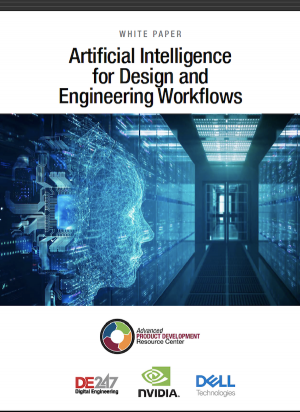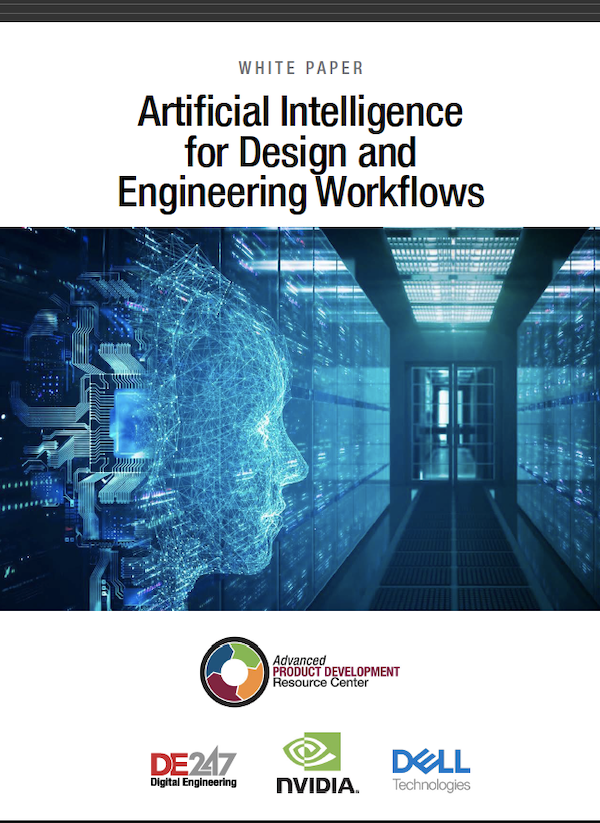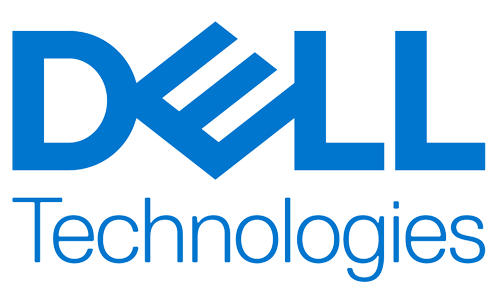Dell Debuts Powerful Next-Generation Workstations
New Dell Precision tower and mobile workstations harness the power of the latest generation of NVIDIA RTX™ Ada Generation GPUs and 13th-generation Intel processors.

Latest News
April 6, 2023
Dell Technologies has announced new offerings in its Precision line of professional workstations, with a refresh of its entire family of mobile workstations and a major update to the linchpins of its tower offerings.
Dell has made a significant upgrade to its tower workstation line with the Dell Precision 5860 (which replaces the 5820) and Precision 7960 (which upgrades the 7920) devices. Both tower workstations have been upgraded with a new chassis design and much more compute power.
The Precision 5680 supports up to two Intel Xeon W7-2495X processors, as well as support for two NVIDIA GPUs (up to the new NVIDIA RTX™ 6000 Ada Generation GPUs). It also offers 56TB of storage and 2TB of 4800MHz DDR5 memory. The 7960 supports Intel Xeon (350W) 56-core CPUs and can accommodate four NVIDIA GPUs. It also offers 4TB of memory and PCIe Gen ⅘ slots. Both towers will be available with the new NVIDIA RTX 6000 GPU later this year.
This is a complete chassis and architecture redesign, says Scott Hamilton, senior industry strategist at Dell. The Precision 5680 remains a single CPU system, but now supports up to 24 cores (up from 18 cores) and still handles up to two double-wide graphics cards.

The 7960 tower has been subject to the biggest changes. The unit was previously a dual socket machine that could support two 28-core CPUs. Now the unit is a super single socket computer that offers up to a single 56-core CPU. “Previously, this computer was great for the CAE space for applications that were multi-threaded, but there was some overhead involved in the exchange of data between the two CPUs,” Hamilton says. “Now all of the cores live on a single die, so the message passing, and memory architecture is more efficient. The other benefit is that the chassis is bigger, so now we can put up to four double-wide graphics cards in there. If you wanted to have a monster compute machine, you could put four NVIDIA RTX 6000 cards in this box.”
As Hamilton points out, that type of extremely powerful configuration can benefit CAE applications but provides even more benefits for rendering and artificial intelligence. We are seeing a lot of workflows that now have AI built into them, including visualization tools and solvers. These are use cases where people don't normally think of AI playing a role, but the technology is there now.
The Precision 7960 Rack is the next generation dual socket (up to 112 cores) 2U rack mountable workstation. This is ideal for high end GPU and GPU compute applications, remoting and high-speed data center network connectivity. Users can connect remotely from the office, home or on the road which removes the space, noise, and heat out of the working environment while providing excellent performance.
In addition, the Precision 3260 Compact has also been upgraded to the 13th Gen Intel processors, but without a model name change. Customers can still buy the 3260 with the previous generation Intel processors.
High-Powered Mobile Workstations
On the mobile workstation side, all of the Dell Precision workstations now offer 13th Gen Intel Core Processors (i5, i7 or i9, depending on the model), as well as next generation NVIDIA RTX Ada Generation laptop GPUs. Memory has been upgraded to DDR5, and in some cases the clock speed has also increased.
“In general for our preliminary benchmark testing, we are seeing significant performance gains up to 50% in CPU performance, and up to a 40% improvement on the graphics side depending on which benchmark you are talking about, ” Hamilton says.
The new mobile workstations include:
The Precision 3480, a 14-in. device with up to 64GB of memory that supports the NVIDIA RTX™ A500 laptop GPU.
The Precision 3580, a 14-in. laptop with up to 64GB of memory and support for the NVIDIA RTX A500 laptop GPU. Both the 3000 series workstations can be configured with Intel i5 or i7 CPUs.
The Precision 3581 supports up to the Intel i9 13th-Gen CPU, and up to the NVIDIA RTX™ 2000 Ada Generation laptop GPU.
The Precision 5480 supports up to the Intel i9 13th-Gen CPU, up to the NVIDIA RTX™ 3000 Ada Generation laptop GPU, and offers up to 64GB of memory and a 14-in. display.
Dell has also consolidated its previous 15-in. and 17-in. mobile workstation offerings with a new 16.-in Precision 5680, which includes the Intel Core i9 CPU, up to 64GB of DDR5 memory, and support for up to the NVIDIA RTX™ 5000 Ada Generation laptop GPU.
The Precision 7680 is also a 16-in. device with support for up to the Intel i9 13th-Gen CPUs and the NVIDIA RTX 5000 Ada Generation laptop GPU, and up to 128GB of memory. The Precision 7780 offers similar specs but with a 17-in. display.

“The aspect ratio on the 16-in. devices is16 by 10, and because of our design (which is called Infinity Edge or Narrow Bezel, depending on the device), the distance between the edge of the pixels and the display edge of the machine is very small,” Hamilton says.
Hamilton says the 3000 series mobile workstations are targeted at users doing standard 3D CAD work. The 5000 series units have better graphics performance in a thin and light profile. For users that need to maximize performance for 3D CAD, large assembly work, and simulation and analysis, the 7000 series computers offer the best graphics performance in a slightly heavier chassis.
The new Dell Precision workstations offer Dell Optimizer, a free tool that allows users to optimize performance and other attributes in the workstation. They also feature Dell Reliable Memory Technology (RMT), which can detect DIMM errors and remediate those issues.
Dell also offers ProSupport and ProSupport Plus, with greater levels of service and warranty support.
You can learn more about some of the new Dell products in this recent blog, and the latest NVIDIA RTX Ada GPUs here.
More Dell Coverage

More NVIDIA Coverage
Subscribe to our FREE magazine, FREE email newsletters or both!
Latest News








